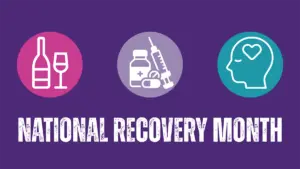Oppositional Defiant Disorder (ODD) is a behavioral condition usually seen in children and teenagers. While many kids may act out sometimes, those with ODD show these behaviors more often and in ways that interfere with daily life.
Below, you’ll learn some common traits and symptoms of ODD that can increase the risk of drug and alcohol addiction. We’ll also address how to recognize when to seek help and where to find support, for yourself or a loved one.

Common Traits and Symptoms of ODD
Many children and teens without ODD also show some of the same behaviors, especially around age 2 or 3, or during the teen years. It’s normal for children to argue, disobey, or test rules sometimes, especially when they are tired, hungry, or upset.
But for kids with ODD, these behaviors happen more often, are stronger, and cause real problems. They can make it hard for the child to do well in school and get along with others.
Common signs of ODD include:
- Having frequent temper tantrums
- Arguing a lot with adults
- Refusing to follow instructions
- Always questioning or breaking rules
- Doing things to annoy or upset others
- Blaming others for their own mistakes
- Getting annoyed easily
- Often being angry
- Speaking in a harsh or mean way
- Wanting to get back at others
ODD can be:
- Mild: Symptoms happen in just one place (like home or school).
- Moderate: Symptoms happen in two places (like home and school).
- Severe: Symptoms happen in three or more places (like home, school, and with friends).
The American Academy of Child & Adolescent Psychiatry estimates that between 1% and 16% of school-age kids and teens have ODD. Boys are a little more likely to have it than girls.
Most kids and teens with ODD also have other mental health conditions. These can include:
- Attention-deficit hyperactivity disorder (ADHD)
- Anxiety disorders, like obsessive-compulsive disorder (OCD)
- Learning differences
- Mood disorders, such as depression
- Problems controlling impulses
About 30% of children with ODD may develop a more serious problem called conduct disorder (CD). Kids with conduct disorder often act aggressively and break important rules at home, school, or with friends. If ODD is not properly diagnosed and treated, its symptoms can continue into adulthood.
What Causes ODD?
Experts don’t fully know what causes ODD, but there are two main ideas:
- Developmental Theory: This idea says ODD starts when children are very young, like toddlers. Some kids have trouble learning how to be independent from their parents or caregivers. Their behavior might be normal for toddlers, but lasts longer than usual.
- Learning Theory: This idea says children with ODD learn certain negative behaviors because of how people around them react. If a child acts out and gets a lot of attention, even if it’s negative, they may keep doing it. The child learns that this behavior gets them what they want.
Understanding these symptoms and causes helps us better support children and teens with ODD.
How ODD Can Lead to Drug and Alcohol Addiction
ODD is more than just a childhood behavioral issue; it can set the stage for serious problems later in life, including substance use disorders (SUDs). Research shows that children with ODD are at higher risk of developing alcohol, drug, and nicotine dependence as they grow older.
A comprehensive meta-analysis of 37 studies involving over 762,000 participants found that children with ODD or conduct disorder (CD) had a significantly increased risk of developing substance use disorders. The odds ratio for SUDs in this group was 4.86, meaning they were nearly five times more likely to develop substance use issues compared to those without these disorders.1
Further studies highlight that the risk is even higher when ODD coexists with other conditions like Attention-Deficit/Hyperactivity Disorder (ADHD). For instance, a study involving adolescents from the Northern Finland Birth Cohort 1986 found that ADHD symptoms were associated with an increased risk of SUDs, and this risk remained elevated even in individuals with ADHD but without ODD symptoms.2
Also, a study published in the Asian Journal of Psychiatry established a significant association between childhood ODD and adult alcohol dependence. This link persisted even after accounting for the presence of ADHD and CD, suggesting that ODD alone can be a strong predictor of future substance use issues.3
Seeking Help for Oppositional Defiant Disorder
If you notice that a child or teen often shows strong anger, argues a lot, or refuses to follow rules, more than what seems normal for their age, it might be time to get help. These behaviors can make life harder at home, at school, and with friends.
You should seek support when these behaviors occur:
- Happen very often
- They are very strong or hard to manage
- Cause problems at school or at home
- Hurt relationships with family or friends
- Make daily life stressful for the child or the family
Getting help early can make a big difference. A doctor, therapist, or counselor can evaluate the child and decide if they have ODD. They can also check for other issues like anxiety or ADHD that often happen alongside ODD.
Treatment Options for ODD and Co-occurring Addiction
ODD and addiction at the same time can be challenging, but there are effective ways to help. The goal is to address both the behavior problems and the substance use together for the best results.
Below are some common treatment options:
- Behavioral Therapy: This type of therapy helps children and teens learn how to control their anger, follow rules, and get along better with others. Therapists teach skills to handle strong emotions and make better choices.
- Parent Training Programs: Parents learn ways to support their child’s positive behavior and manage difficult behavior without punishment. This helps create a calmer, more supportive home environment.
- Family Therapy: Sometimes the whole family works together with a therapist. This helps improve communication, solve conflicts, and build stronger relationships.
- Substance Use Treatment: If addiction is present, specialized therapy is needed. This may include counseling, support groups, and sometimes medication to help reduce cravings or manage withdrawal.
- Combined Treatment: Because ODD and addiction often happen together, it’s important to treat both at once. Integrated programs focus on behavior problems and substance use side by side.
- School Support: Schools can offer extra help, like counseling or special programs, to support learning and social skills.
- Medication: There is no specific medicine for ODD, but if other conditions like ADHD or depression are present, doctors might prescribe medications to help.
Getting help early and using these treatments can improve behavior and reduce the chances of addiction getting worse. Always work with healthcare providers to find the best plan for each individual.
Get Help Today
South Coast Counseling offers specialized support for children and teens with ODD through evidence-based therapies. Our approaches aim to improve behavior, enhance family communication, and promote positive coping skills.

Sources:
- Groenman, A. P., Janssen, T. W. P., & Oosterlaan, J. (2017). Childhood Psychiatric Disorders as Risk Factor for Subsequent Substance Abuse: A Meta-Analysis. Journal of the American Academy of Child & Adolescent Psychiatry, 56(7), 556–569. https://doi.org/10.1016/j.jaac.2017.05.004
- Mustonen, A., Rodriguez, A., Scott, J. G., Miika Vuori, Hurtig, T., Halt, A.-H., Jouko Miettunen, Anni-Emilia Alakokkare, & Solja Niemelä. (2023). Attention deficit hyperactivity and oppositional defiant disorder symptoms in adolescence and risk of substance use disorders—A general population‐based birth cohort study. Acta Psychiatrica Scandinavica, 148(3), 277–287. https://doi.org/10.1111/acps.13588
- Ghosh, A., Malhotra, S., & Basu, D. (2014). Oppositional defiant disorder (ODD), the forerunner of alcohol dependence: A controlled study. Asian Journal of Psychiatry, 11, 8–12. https://doi.org/10.1016/j.ajp.2014.03.006







